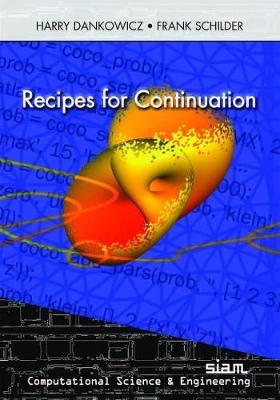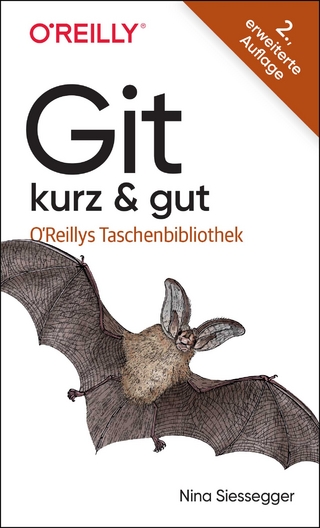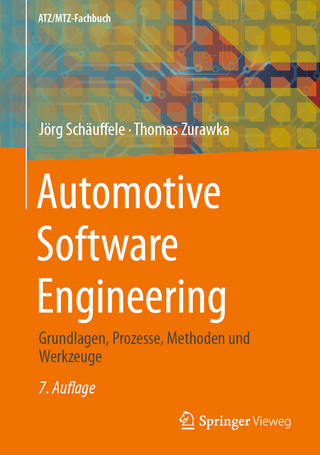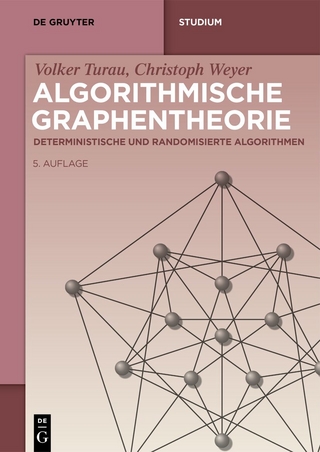
Recipes for Continuation
Society for Industrial & Applied Mathematics,U.S. (Verlag)
978-1-61197-256-6 (ISBN)
This book provides a comprehensive introduction to the mathematical methodology of parameter continuation. It develops a systematic formalism for constructing and implementing abstract representations of continuation problems with equal emphasis on theoretical rigor, algorithm development and software engineering. The book demonstrates the use of fully developed toolbox templates for boundary-value problems to the analysis of periodic orbits, quasi-periodic invariant tori, and connecting orbits between equilibria and/or periodic orbits. The book contains extensive and fully-worked examples that illustrate the application of the MATLAB-based Computational Continuation Core (COCO) to cutting-edge research in applied dynamical systems. Many exercises and open-ended projects on both theoretical and algorithmic aspects of the material are provided, suitable for self-study and course assignments. It is intended for students and teachers of nonlinear dynamics and engineering at the advanced undergraduate or first-year graduate level, as well as practitioners engaged in modeling dynamical systems or software development.
Harry Dankowicz is Professor of Mechanical Science and Engineering at the University of Illinois, Urbana-Champaign. He is the author of a research monograph on chaos in Hamiltonian systems and a textbook on multibody mechanics, and serves as an Associate Editor of the SIAM Journal on Applied Dynamical Systems. Frank Schilder has held postdoctoral research and teaching positions at the University of Bristol, the University of Surrey, and the Technical University of Denmark. In addition to COCO, he is the author of TORCONT and RAUTO and a co-author of SYMPERCO.
Part I. Design Fundamentals: 1. A continuation paradigm; 2. Encapsulation; 3. Construction; 4. Toolbox development; 5. Task embedding; Part II. Toolbox Templates: 6. Discretization; 7. The collocation continuation problem; 8. Single-segment continuation problems; 9. Multisegment continuation problems; 10. The variational collocation problem; Part III. Atlas Algorithms: 11. Covering manifolds; 12. Single-dimensional atlas algorithms; 13. Multidimensional manifolds; 14. Computational domains; Part IV. Event Handling: 15. Special points and events; 16. Atlas events and toolbox integration; 17. Event handlers and branch switching; Part V. Adaptation: 18. Pointwise adaptation and comoving meshes; 19. A spectral toolbox; 20. Integrating adaptation in atlas algorithms; Part VI. Epilogue: 21. Toolbox projects; Index.
| Erscheint lt. Verlag | 8.8.2013 |
|---|---|
| Reihe/Serie | Computational Science and Engineering |
| Verlagsort | New York |
| Sprache | englisch |
| Maße | 177 x 254 mm |
| Gewicht | 1050 g |
| Themenwelt | Mathematik / Informatik ► Informatik ► Software Entwicklung |
| Mathematik / Informatik ► Informatik ► Theorie / Studium | |
| Mathematik / Informatik ► Mathematik ► Analysis | |
| Naturwissenschaften ► Physik / Astronomie ► Mechanik | |
| ISBN-10 | 1-61197-256-6 / 1611972566 |
| ISBN-13 | 978-1-61197-256-6 / 9781611972566 |
| Zustand | Neuware |
| Haben Sie eine Frage zum Produkt? |
aus dem Bereich


